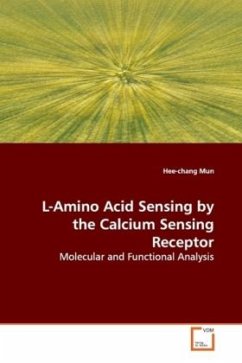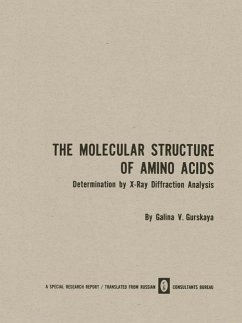The human calcium sensing receptor (hCaR) is a
G-protein coupled receptor that responds to calcium
ions as its principal physiological agonist. L-amino
acids are allosteric activators of the cloned CaR
expressed in HEK293 cells but the physiological
significance of this effect has been uncertain. This
book provides evidence that L-amino acids are
physiologically relevant activators of endogenous
CaRs. Experiments reported in this book also
investigated the location of amino acid binding site
of the CaR. Chimeric receptors constructed by domain
shuffling between the human CaR and rat metabotropic
glutamate receptor type-1 (mGlu-1) were used to
localize the amino acid binding site of the CaR to
its N-terminal, bilobed, Venus Fly Trap domain.
Furthermore, the roles of putative amino acid binding
site residues in the Venus Fly Trap domain were
investigated using conservative and semi-conservative
mutations of the following residues: T145, S147,
T151, S169, S170, S171, Y218 and E297. Finally, a
novel activating mutation (E604K) in the cysteine
rich domain of the hCaR in an Australian family with
autosomal dominant hypocalcemia (ADH) was identified.
G-protein coupled receptor that responds to calcium
ions as its principal physiological agonist. L-amino
acids are allosteric activators of the cloned CaR
expressed in HEK293 cells but the physiological
significance of this effect has been uncertain. This
book provides evidence that L-amino acids are
physiologically relevant activators of endogenous
CaRs. Experiments reported in this book also
investigated the location of amino acid binding site
of the CaR. Chimeric receptors constructed by domain
shuffling between the human CaR and rat metabotropic
glutamate receptor type-1 (mGlu-1) were used to
localize the amino acid binding site of the CaR to
its N-terminal, bilobed, Venus Fly Trap domain.
Furthermore, the roles of putative amino acid binding
site residues in the Venus Fly Trap domain were
investigated using conservative and semi-conservative
mutations of the following residues: T145, S147,
T151, S169, S170, S171, Y218 and E297. Finally, a
novel activating mutation (E604K) in the cysteine
rich domain of the hCaR in an Australian family with
autosomal dominant hypocalcemia (ADH) was identified.








